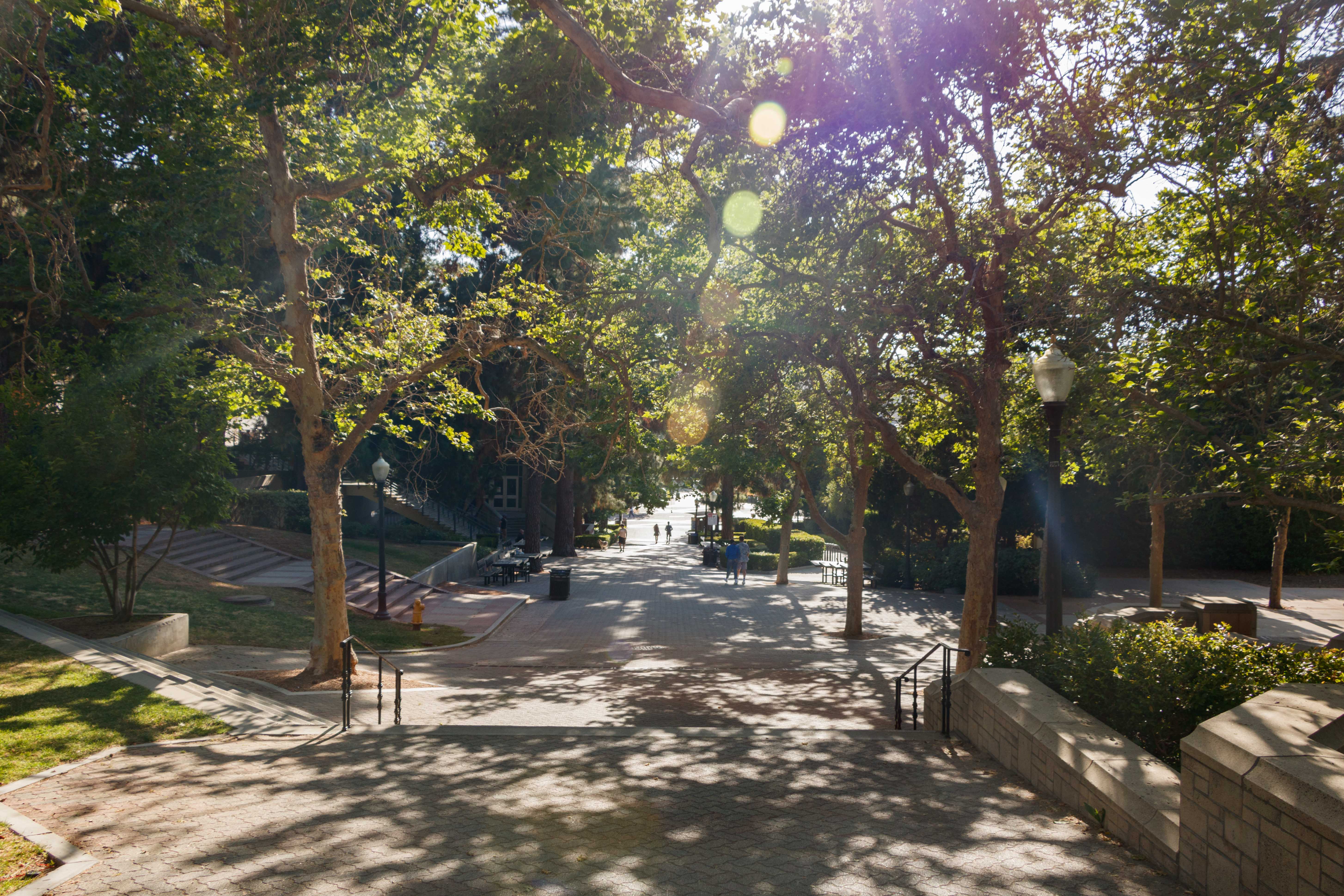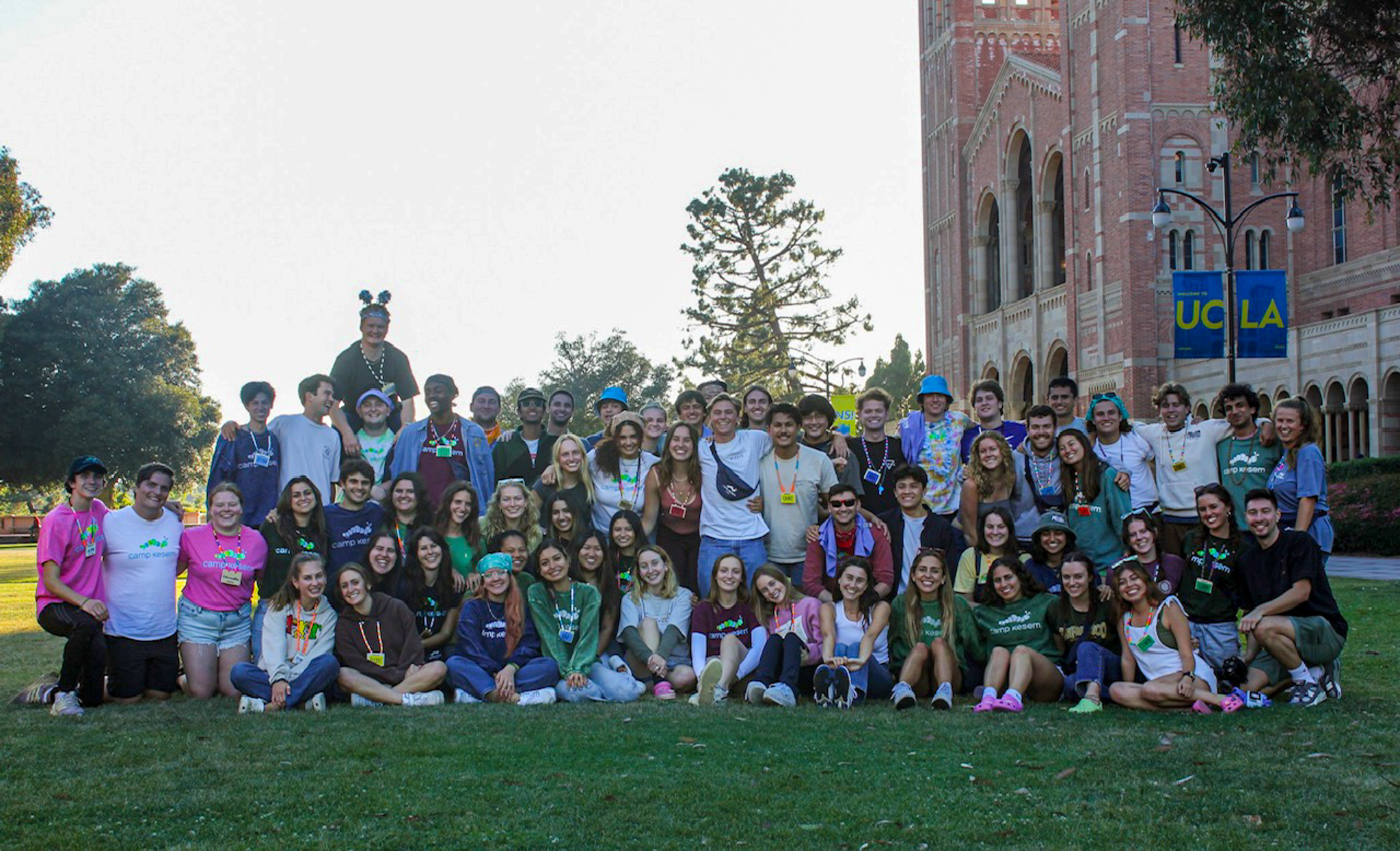USIE program allows fourth-year to facilitate class about summer camp benefits

(By Joy Chen / Daily Bruin Staff)
By Alexandra Crosnoe
April 24, 2024 5:48 p.m.
The final slide of Idella Smolyar’s classes isn’t homework or review questions but a childhood photo of her at summer camp.
Education 88SB: “Educational and Psychological Impacts of Summer Camps on Children and Adolescents” is a one-unit seminar exploring the behavioral, social and academic impacts of summer camps on children. Smolyar, a fourth-year psychology student, teaches the class through the Undergraduate Student Initiated Education program, which allows students to design and facilitate classes on a topic of their choice.
Smolyar said she wanted to teach a class on summer camps because of the positive impact they had on her life, both as a camper and counselor. She added that she hopes to explore how camps influence children from various perspectives.
“I was just like, ‘It would be so cool to do a class for the people that are camp counselors or went to summer camp so that they know something can come out of it,’” she said. “Whether it be through psychological theory or something like cool research or honestly connecting your personal experience, it’s something that you can learn.”
The planning process for USIE seminars begins a year in advance. Smolyar said she submitted a 10-week teaching plan, found a faculty mentor and created a syllabus before her application was then reviewed and approved by a committee of faculty and students.
The 22-student class meets once a week for 50 minutes. Assignments for the class include short readings and listening to podcasts, Smolyar said, adding that the class culminates with a project where each student creates their own summer camp.
One of the major topics the class covers is summer learning loss, where students forget a significant amount of information over summer break, Smolyar said. She added that summer camp has been shown to be helpful in preventing learning loss.
“If you were doing science activities during summer camp, or you’re going to the library with other campers or just doing critical thinking as part of camp or using your creativity when you’re doing arts and crafts, camps are very beneficial at offsetting that,” she said.
Emmet Asker, a second-year biochemistry student, said he enrolled in the class because he wanted to take a non-STEM course. He added that the class has taught him about the educational benefits of summer camp, specifically in how it exposes children to tactile and experiential learning.
Asker said he hopes to learn more about accessibility to summer camps for low-income children.
“There is no school during the summer, and we know that kids are having learning loss,” he said. “Summer camps are made and advertised as a way to prevent learning loss, but then it’s like, ‘Why aren’t we doing more for kids that can’t do summer camps?’”
Smolyar said the class includes students who had never attended camp, people who had only attended day camps and someone who had managed their own camp.
“Having all these broad experiences is really cool,” she said. “We’ll have someone who’s literally a manager of her camp and then someone else that’s never been, and they’re talking. So it’s, I think, a good learning environment.”
Emma Steiner, a first-year English student, said she only attended day camps in the past and wanted to learn more about the impacts of different camps on children. She added that she thinks it is important to study summer camps to understand the psychological effects of an experience many children have.
Smolyar said her teaching style has been influenced by classes she took in the past. To make her class interactive and engaging rather than stressful, she does not give quizzes or tests, she said.
Asker said he enjoyed having an undergraduate student as a teacher, adding that he would take a USIE seminar again.
“There’s a little bit of spookiness, having a professor who has been in academics for so long versus a student who’s like, ‘I understand what it means to be a student,’” he said. “It makes it more fun because it’s easier to connect with someone who’s a fourth-year.”
Asker, who plans on going into medicine, said he thinks having a background knowledge in summer camps could help him understand child patients better.
Steiner added that the class made her excited about the prospect of joining the professional sphere of summer camps.
“It’s definitely opened me up to a new world,” Steiner said. “Something that would be interesting for me to explore would be working at a summer camp more consistently or opening up a program of my own.”






